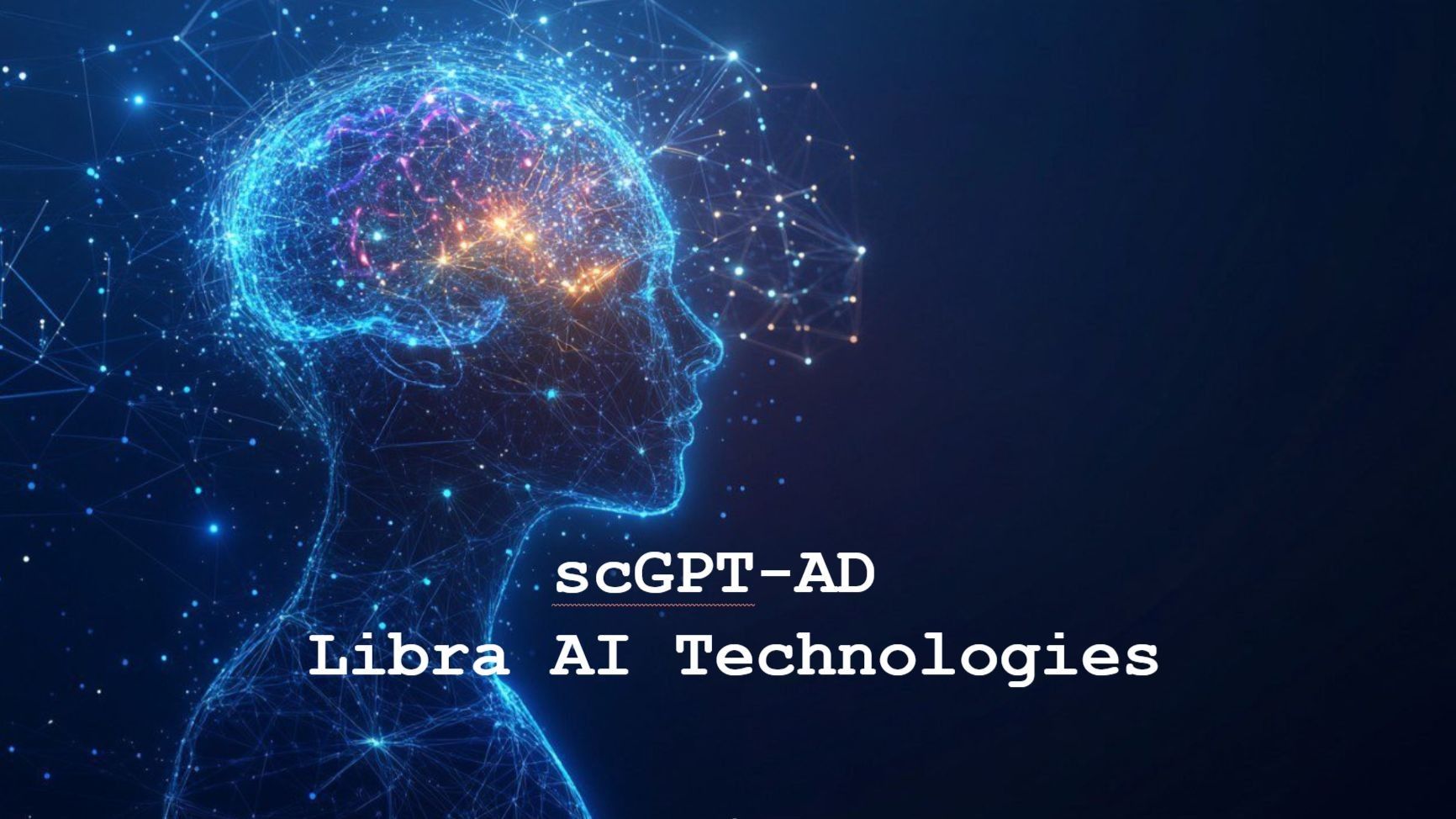Alzheimer’s Disease (AD) poses one of the most significant healthcare challenges of our era, impacting millions globally while straining healthcare systems and delaying effective therapeutic breakthroughs. A fundamental barrier to progress lies in deciphering the complex cellular and molecular landscape of AD to enable early detection, targeted interventions, and personalised treatment pathways.
Recognising this, the ENFIELD scGPT-AD initiative was launched to accelerate Alzheimer’s research through advanced Artificial Intelligence frameworks. Within this ambitious initiative, LIBRA AI Technologies contributed its expertise in generative AI and Machine Learning, developing specialised models to analyse high-dimensional single-cell RNA sequencing (scRNA-seq) data to reveal actionable biological insights.
Bridging Complexity with Generative AI
Traditional computational methods often fall short in capturing the nuanced biological signals embedded within scRNA-seq data, limiting the ability to identify disease progression markers and therapeutic targets in Alzheimer’s.
LIBRA addressed this gap by applying Generative Pre-trained Transformer (GPT) architectures, adapted to process biological sequence data, to identify previously hidden gene co-expression networks, cellular state transitions, and biomarkers associated with AD. This work aligns directly with LIBRA’s mission to deliver AI-powered solutions that advance precision medicine and accelerate discovery pipelines in complex disease areas.
Strategic Outcomes Delivered
Over the course of the project, the LIBRA AI team has successfully:
- Curated and standardised 99 high-quality AD-specific scRNA-seq datasets, building a robust foundation for scalable, high-fidelity model training.
- Developed and trained two scGPT-AD model configurations, including an extended vocabulary enriched with 2,000 Alzheimer’s-relevant genes, enhancing biological coverage and interpretability.
- Achieved notable improvements in predictive performance, increasing AD vs. Control classification accuracy from 77% to 83% and Braak stage classification accuracy from 65% to 82%, demonstrating the model’s capability to capture disease-relevant signals.
- Mapped 232 Alzheimer 's-associated gene co-expression networks, elucidating critical pathways involved in microglial activation, cholesterol metabolism, and neuronal stress—mechanisms that are pivotal to advancing therapeutic strategies.
Amplifying Impact Through Strategic Engagement
During the ENFIELD Innovation Workshop at Boeing’s headquarters in Madrid, LIBRA AI Technologies presented its development of the scGPT-AD model, an advanced generative AI tool designed to analyse single-cell RNA data and uncover gene interactions and expression patterns in Alzheimer’s Disease.
Our Senior Data Scientist, Theodoros Siozos, showcased this work using an engaging PechaKucha storytelling format, fostering insightful discussions with researchers and innovators from across Europe on how generative AI can accelerate biomedical research and precision medicine efforts in neurodegenerative diseases.

Charting the Path Ahead
Building on the momentum and outcomes of the scGPT-AD initiative, LIBRA is poised to advance its leadership in AI-driven healthcare innovation by strategically expanding the reach and application of its generative AI frameworks. As a first step, we intend to prepare and submit a peer-reviewed publication that will detail the methodology, technical advancements, and translational relevance of the scGPT-AD model. This will contribute to the scientific community while reinforcing LIBRA’s role at the forefront of deploying advanced AI technologies to address complex biomedical challenges.
In parallel, LIBRA will actively engage with premier AI and healthcare conferences, including NeurIPS and IEEE EMBC, to showcase its work and exchange insights with researchers, healthcare leaders, and industry stakeholders. These platforms will facilitate the cultivation of strategic partnerships and the exploration of collaborative opportunities, supporting LIBRA’s commitment to accelerating the adoption of precision medicine approaches in neurodegenerative disease research and beyond.
Looking ahead, LIBRA will continue to refine and adapt its generative AI models to ensure seamless integration into translational and preclinical pipelines. By aligning these technologies with the needs of pharmaceutical and biotechnology partners, LIBRA aims to support efforts to de-risk and accelerate therapeutic discovery and development in Alzheimer’s Disease, ultimately contributing to more efficient and targeted interventions for patients worldwide.

